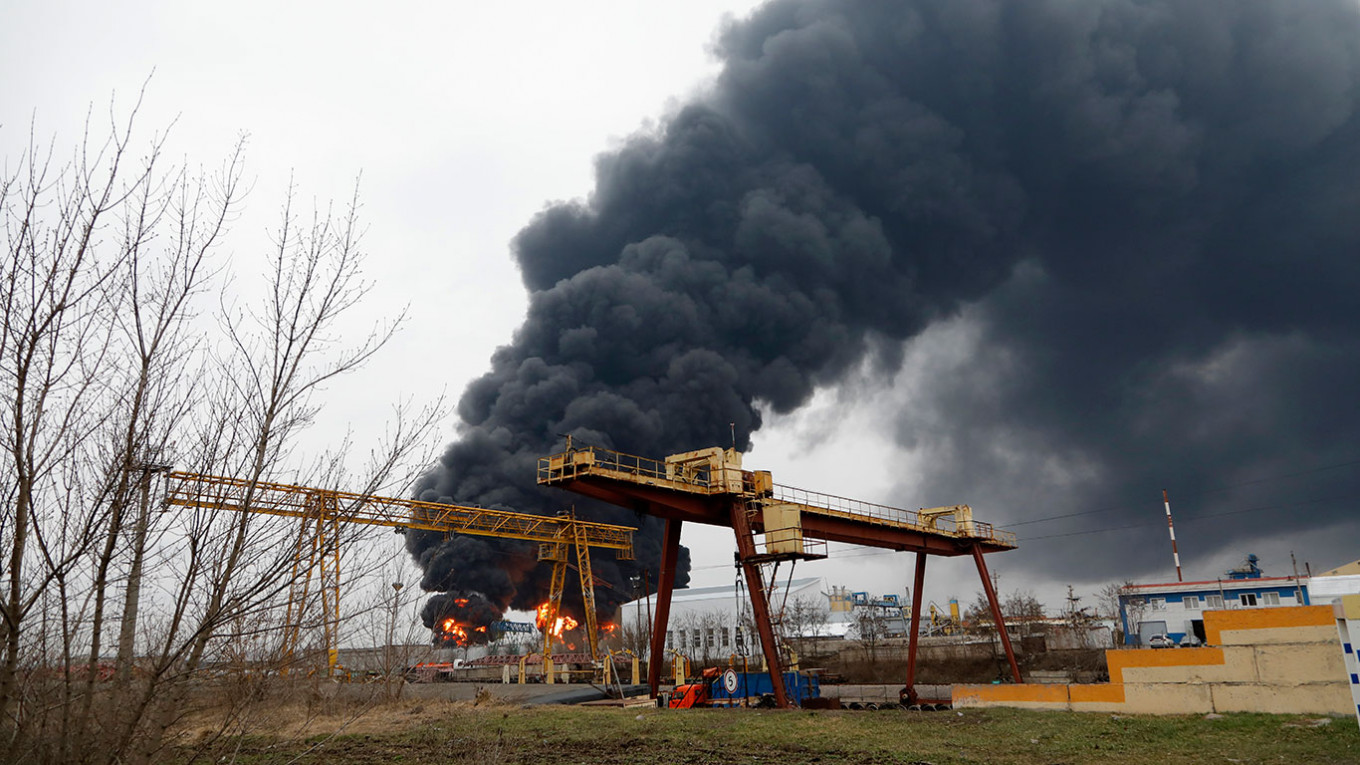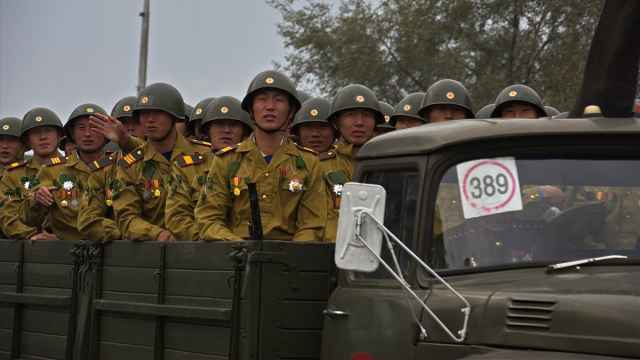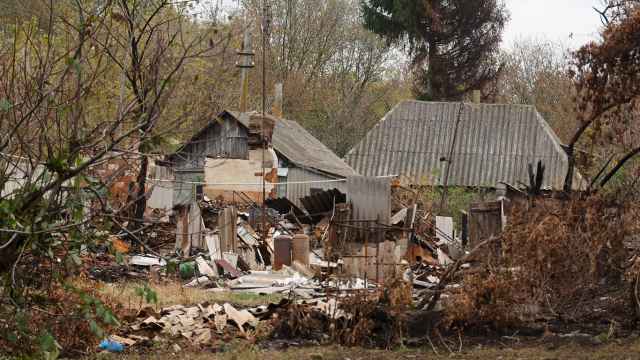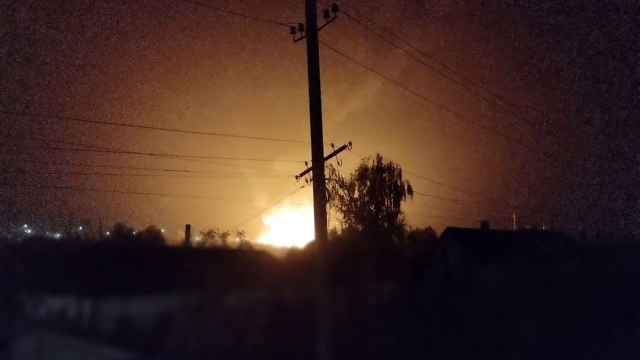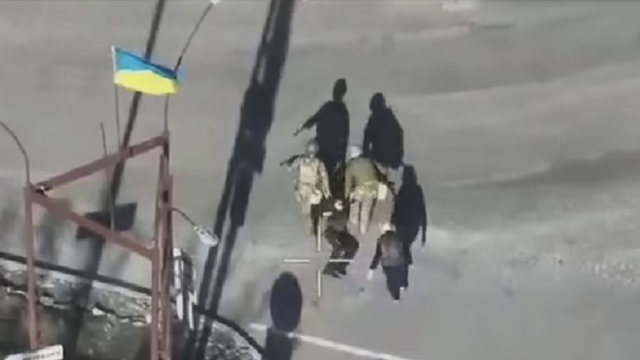Russia reported its first civilian killed since the start of its war in Ukraine on Wednesday after a strike on a village near the two countries’ shared border.
The casualty escalates a series of explosions and fires that have afflicted Russia’s border regions since Moscow invaded Ukraine on Feb. 24.
In addition to killing one person, the strike injured seven others in the Belgorod region town of Solokhi located 10 kilometers from the Ukrainian border, the region’s governor said.
Belgorod Governor Vyacheslav Gladkov blamed the “Ukrainian side” for Wednesday’s strike, but Ukraine has not claimed responsibility for the attack — nor any of the other attacks on Russia’s side of the border.
Here’s what you need to know:
What’s happening?
Russia’s regions bordering Ukraine have witnessed several explosions and other incidents since President Vladimir Putin announced the “special military operation” against Kyiv on Feb. 24.
Most of the incidents have happened in the Belgorod region. On March 29, explosions were heard in the town of Krasnyi Oktyabr, or Red October, 10 kilometers from the border.
Just three days later, an oil depot exploded in the city of Belgorod. The fire lasted for almost a day and took 170 firefighters from three regions to extinguish it, according to the region’s governor.
A railroad in the neighboring Bryansk region was destroyed on April 12. On April 25, an oil depot and a military site in the same region caught fire. The two facilities respectively held 10,000 and 5,000 tons of fuel, but it’s not clear whether the fires were related to the war in Ukraine.
On May 1, a fire broke out at a Russian Defense Ministry facility in Belgorod and a railway bridge collapsed in the neighboring Kursk region.
Two weeks later, large blasts were heard in the city of Belgorod. This time, the governor said it was the Russian army’s munitions that residents heard.
What is Russia saying?
Six regions near Ukraine’s border have raised their “terror” threat levels in response to the incidents.
Belgorod region Governor Vyacheslav Gladkov has blamed Ukrainian forces for incidents in his region several times, including Wednesday’s fatal strike.
When a railway bridge collapsed in the Kursk region, Governor Roman Starovoyt blamed it on “sabotage” but did not name Ukraine outright.
The Kremlin on Thursday called for additional measures to strengthen security in Russian territories close to Ukraine in light of the attacks. It has previously said that alleged attacks by Ukraine will hinder peace negotiations.
What is Ukraine saying?
Ukrainian officials have not claimed responsibility for the attacks but have also not explicitly denied being behind them.
Ukrainian military intelligence has also said that Russia could stage attacks on its own territory and blame them on Kyiv.
Oleksiy Arestovych, an adviser to Ukrainian President Volodymyr Zelensky, has said that Kyiv is adhering to a policy of “strategic ambiguity” on the subject of attacks on Russian territory.
Mykhailo Podolyak, another adviser of Zelensky’s, said only that fuel and weapons storage fires in Russia were “an absolutely natural process.”
A Message from The Moscow Times:
Dear readers,
We are facing unprecedented challenges. Russia's Prosecutor General's Office has designated The Moscow Times as an "undesirable" organization, criminalizing our work and putting our staff at risk of prosecution. This follows our earlier unjust labeling as a "foreign agent."
These actions are direct attempts to silence independent journalism in Russia. The authorities claim our work "discredits the decisions of the Russian leadership." We see things differently: we strive to provide accurate, unbiased reporting on Russia.
We, the journalists of The Moscow Times, refuse to be silenced. But to continue our work, we need your help.
Your support, no matter how small, makes a world of difference. If you can, please support us monthly starting from just $2. It's quick to set up, and every contribution makes a significant impact.
By supporting The Moscow Times, you're defending open, independent journalism in the face of repression. Thank you for standing with us.
Remind me later.


